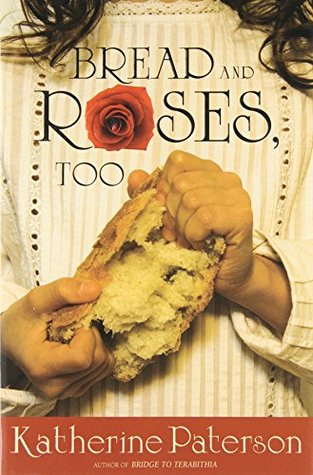This absorbing novel takes place during the infamous 1912 “Bread and Roses” strike in the textile mills of Lawrence, Massachusetts. When the authorities resort to violence, some of the mill workers’ children are sent to volunteer hosts in Vermont to protect them until the strike is over. The two protagonists, Rosa and Jake, stay with a memorable older Italian couple, Mr. and Mrs. Gerbati.
Rosa is in sixth grade, the daughter of Italian immigrants. Since her father’s death, her mother and older sister have worked in the mill for a pittance, sharing their tiny, cold tenement with Lithuanian boarders to make ends meet. Jake is a 13-year-old illiterate mill worker—child labor in America was common then—who sleeps in the streets to avoid the violence of his alcoholic father. His desperate circumstances have forced him into callousness; he routinely steals and lies to survive. Irrationally terrified of being arrested for his father’s abrupt death, Jake sneaks onto the train to Vermont and begs Rosa to say he is her older brother.
The Gerbatis appear in the second half of the book, and they’re worth waiting for. Kind, effusive Mrs. Gerbati piles the children’s plates high with food and buys them the first warm clothing they have ever owned. Her husband, with his thick white mustache and his pipe, is silent and distant at first—lost in a grief of his own. Though small in stature, he has a viselike grip. He is a gifted artisan, the owner of a granite-carving shop, highly respected by his men and renowned for his lifelike carvings of flowers. In a highly moving scene, when Mr. Gerbati finds Jake stealing from him, he doesn’t kick the boy out, but instead confronts him in a disarming way that penetrates through Jake’s crusty defenses and forges a bond between them.
When the strike is over, Rosa eagerly returns to her family, but Jake stays in Vermont as Mr. Gerbati’s apprentice. Well-crafted and informative, with appealing and believable characters, this is historical fiction at its best.



